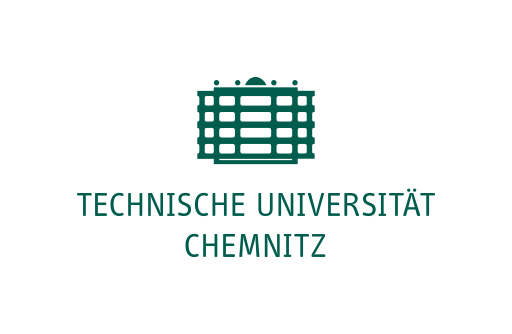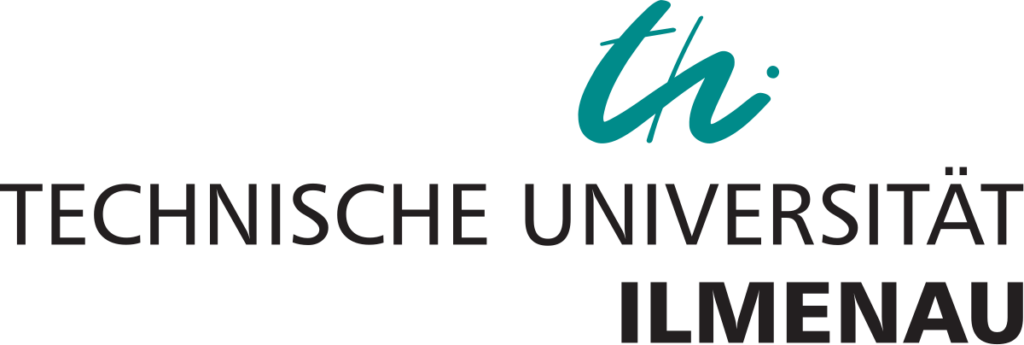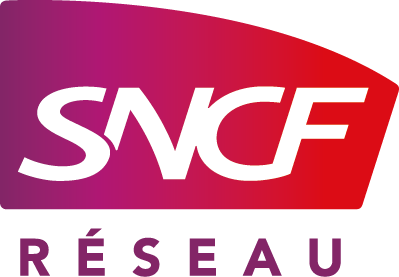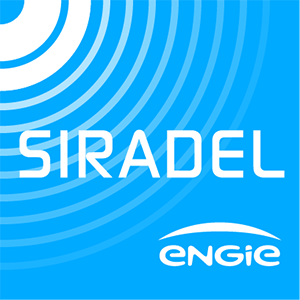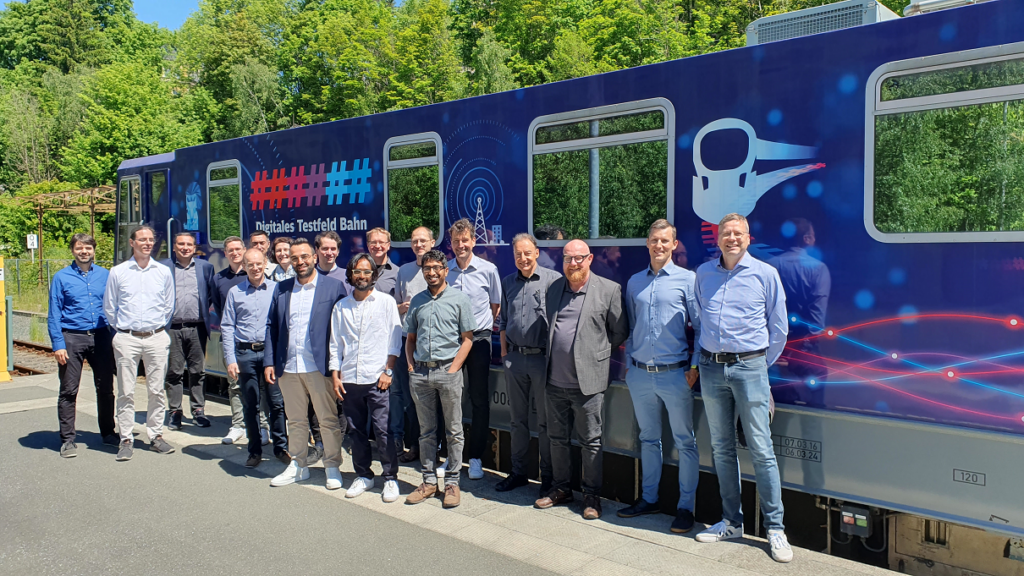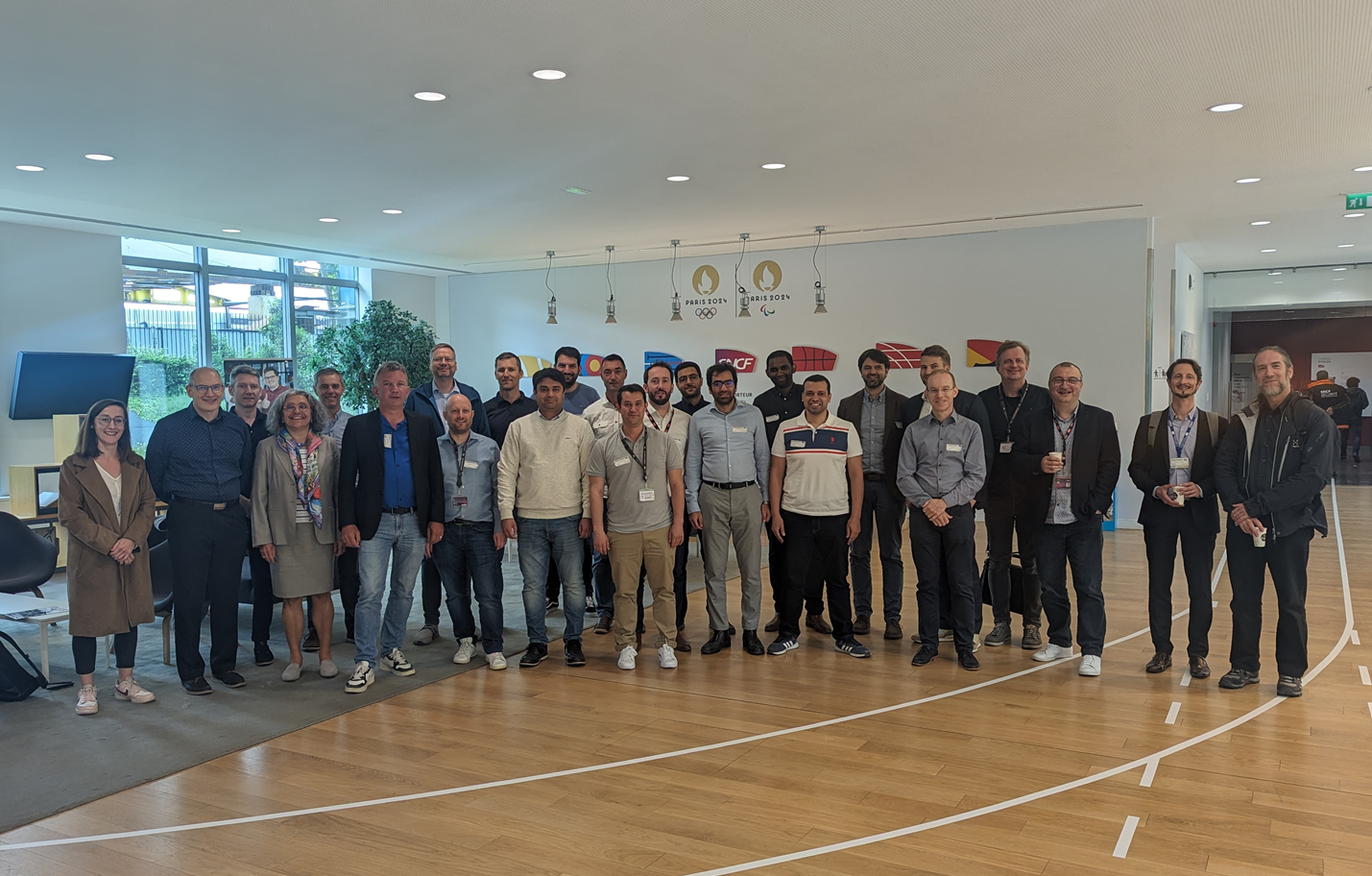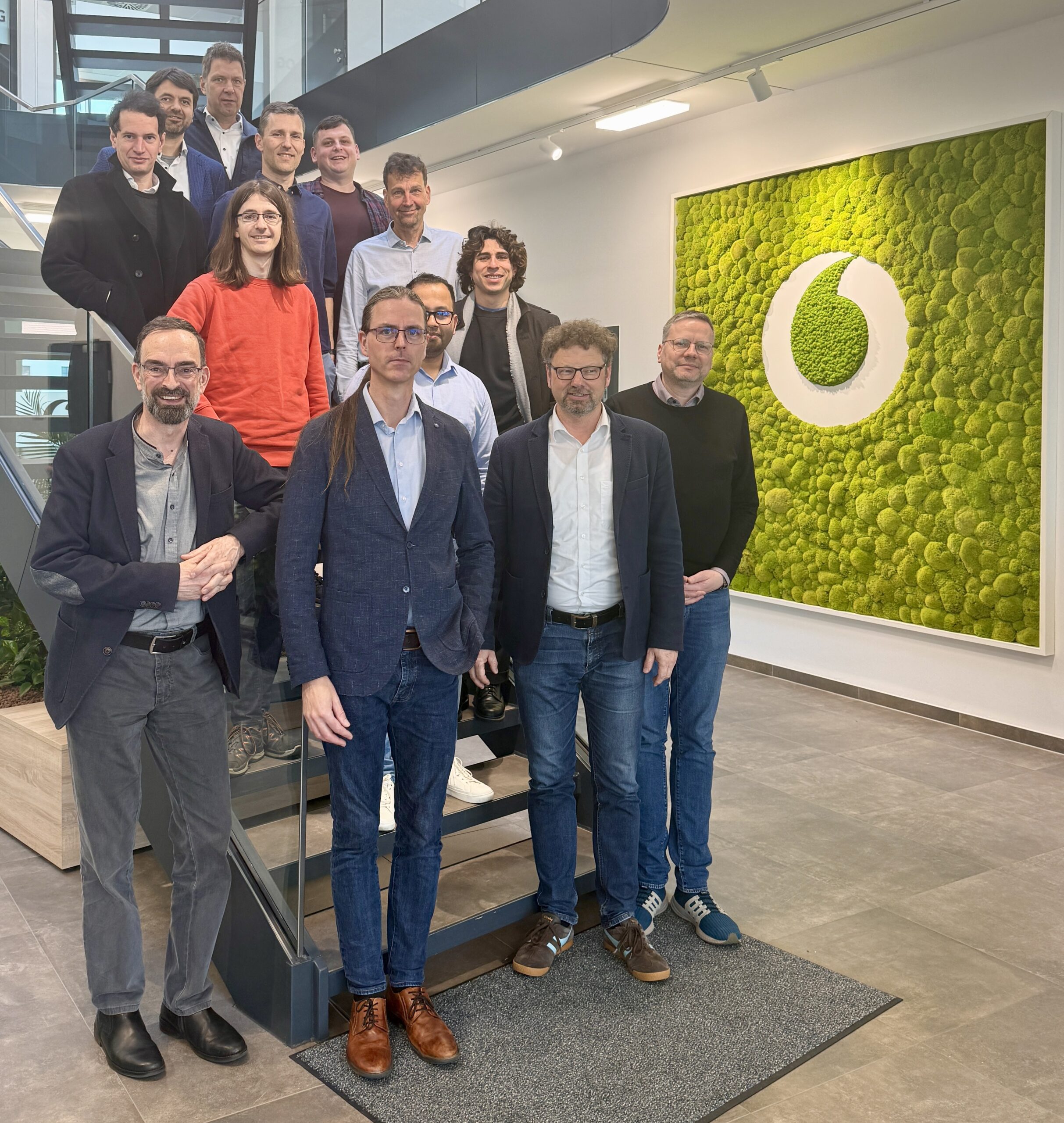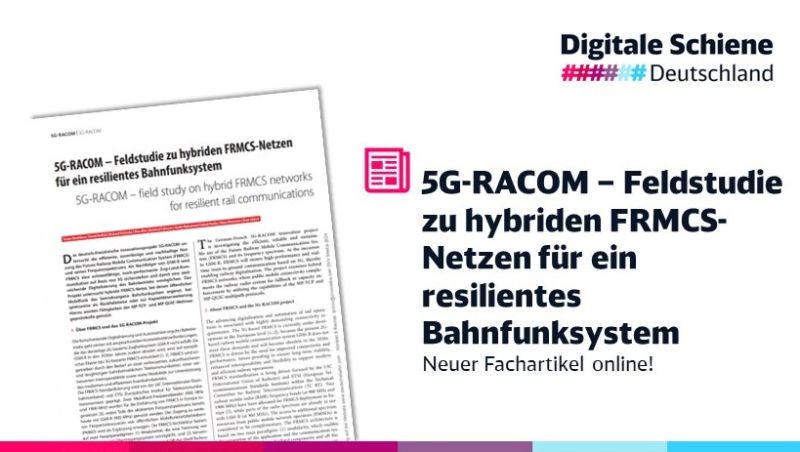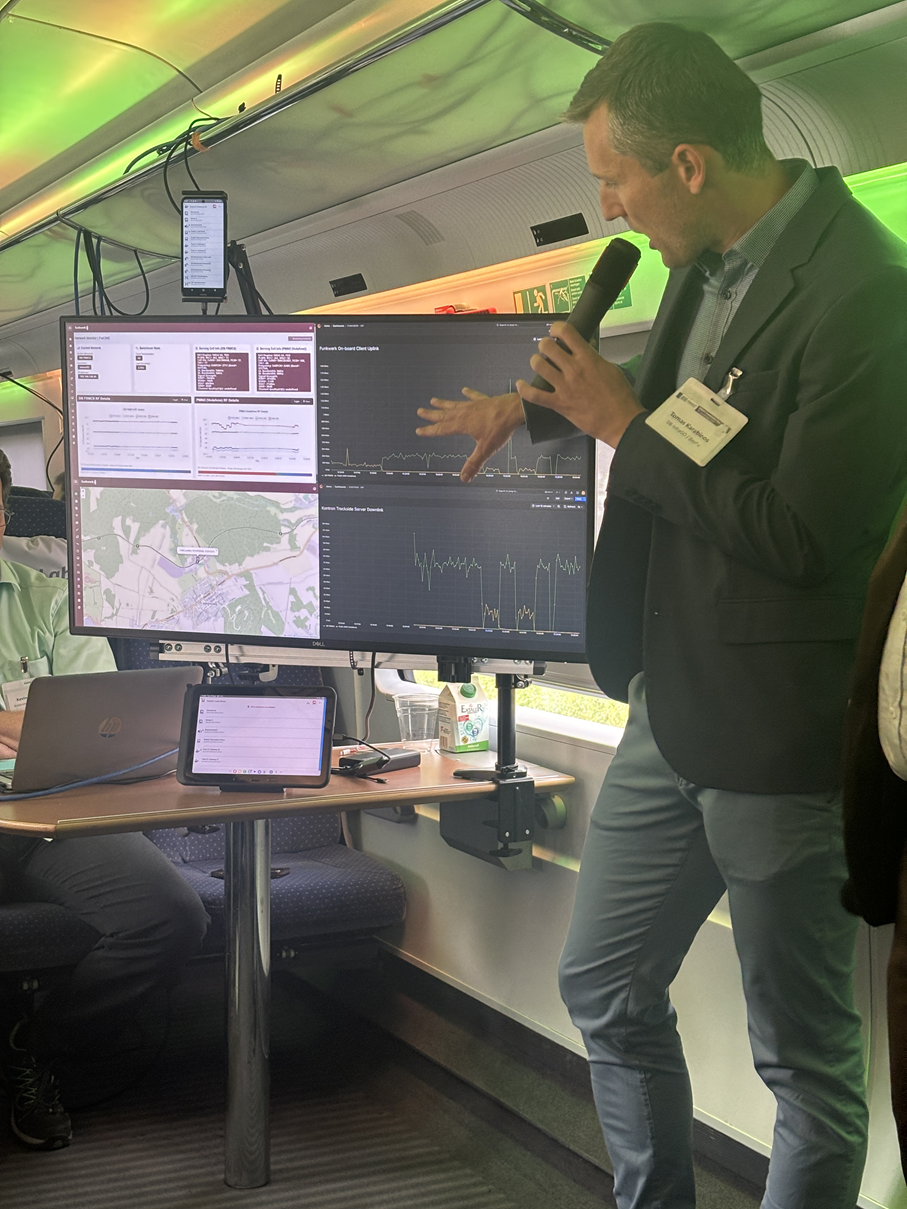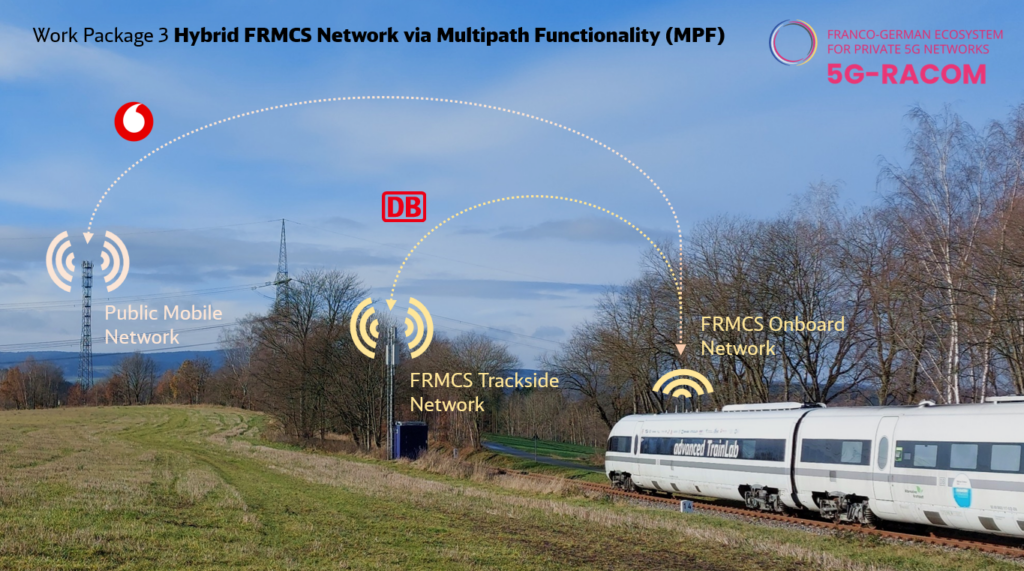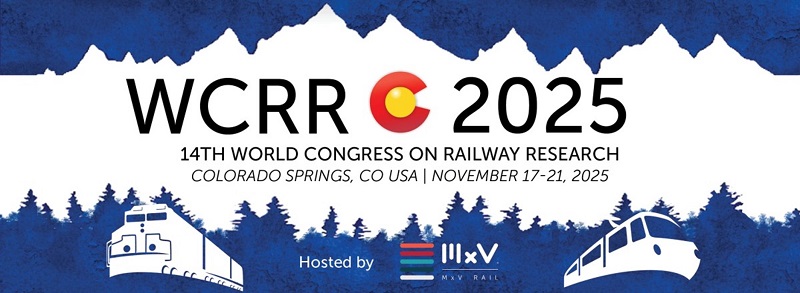The German-French innovation project 5G-RACOM (5G for Resilient and Green RAil COMmunications) is investigating solutions for the efficient, reliable and sustainable use of the Future Railway Mobile Communication System (FRMCS) and the associated frequency spectrum. FRMCS is considered as the successor to GSM-R and will ensure high-performance and real-time wireless communication between trains and infrastructure based on 5G technologies.
Due to the expected increase of data rates driven by FRMCS applications, the European Commission has granted the infrastructure managers in the railway sector a frequency spectrum of 2x 5.6 MHz bandwidth in paired 900 MHz FDD spectrum and an additional 10 MHz bandwidth in the 1900 MHz TDD spectrum. The additional FRMCS bandwidth is an important requirement for the planned digitization of rail traffic. FRMCS will deliver the basis for the digitalization and automation of railway operations and is, hence, fundamental to increase the capacity of trains on the railway tracks.
Mission
5G-RACOM has three objectives for a spectrum-efficient, a resilient and a robust FRMCS system design:
- radio propagation and channel modeling studies at 900 MHz (band n100) and 1900 MHz (band n101) in different railroad operational scenarios of the future FRMCS system, including but not limited to high-speed lines, tunnels, rural areas [Work Package 2.1]
- coexistence studies of GSM-R and FRMCS at 900 MHz and prototype development for technology migration [Work Package 2.2]
- solutions for hybrid FRMCS networks in which the railroad operational radio system is complemented by public mobile radio, e.g., as a fallback layer or to temporarily increase capacity. [Work Package 3]
In the latter project objective, a focus is placed on the evaluation and demonstration of different multipath approaches for parallel operation which are supposed to select best traffic paths in railway and public mobile networks and allow seamless operation and Quality-of-Service (QoS) guarantees for the mission-critical railroad applications.
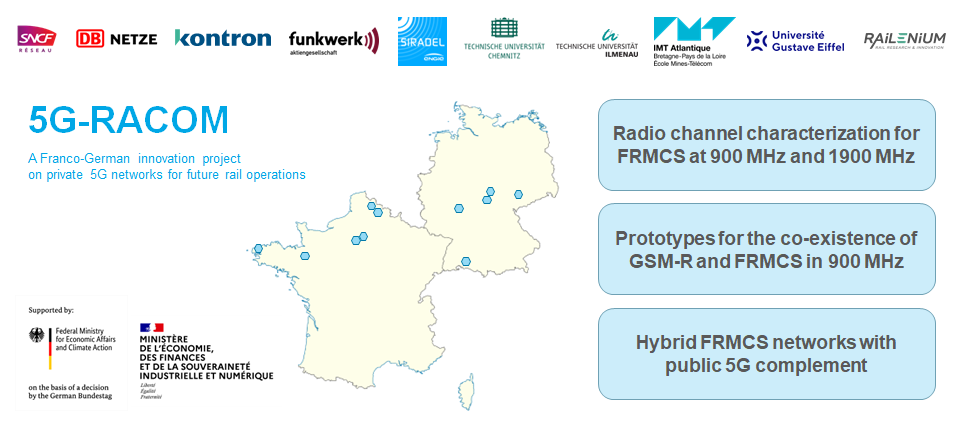
Expected Impact & Outcomes
As a harmonized European railroad standard, FRMCS makes an important contribution to the further development of the railroad sector towards more digitization and automation, and ultimately towards increased capacity of rail transport services. The innovations and prototype implementations from the 5G-RACOM project have the potential to accelerate the introduction of 5G-based FRMCS in rail transport and, thus, also contribute to more sustainability in the entire transport sector.
News
Work Package 3 Kick-Off
30 May 2023 – 5G-RACOM WP3 members met in Annaberg, Erzgebirge, to visit the German field test site and discuss multipath solutions for hybrid FRMCS networks.
5G-RACOM Midterm Conference
11/12 June 2024 – At half time of the project the consortium met for two days at SNCF Headquarters in Saint-Denis (Paris). The project presented its current status and discussed with invited guests from UIC and ERA on how results can support further European FRMCS standardization and validation activities.
Work Package 3 Meeting at Vodafone Innovation Center Dresden
02 April 2025 – The consortium has met in Dresden to share insights in the functional tests on Multipath Protocol implementations. Next on the agenda is performance testing. The meeting was hosted by Vodafone in their Tech Innovation Center where 5G and 6G research for vertical markets happens.
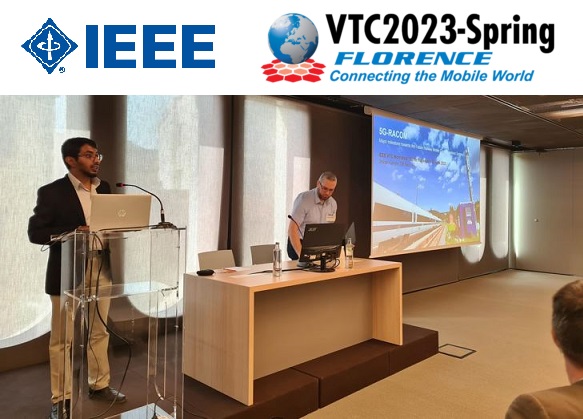
5G-RACOM Keynote @ IEEE VTC Conference
20 June 2023 – The 5G-RACOM project has been presenting its scope and mission at IEEE’s flagship conference VTC in Florence, Italy.
Signal+Draht Article Published
Sept. 2024 – Just in time for InnoTrans 2024, the 5G-RACOM partners have published an article about WP3 in the S+D magazine.
Successful Live-Demonstration of Multipath Protocols for FRMCS
16 Sept. 2025 – The multipath implementations for switching between FRMCS and MNO networks have been successfully demonstrated in DB’s Digital Rail Testbed in Erzgebirge. More than 70 guests from all over Europe, including railway infrastructure managers, supplier industry and representatives from regulation and authorities, have joined the live-demonstration on board of the advanced TrainLab – the experimental ICE train of Deutsche Bahn.
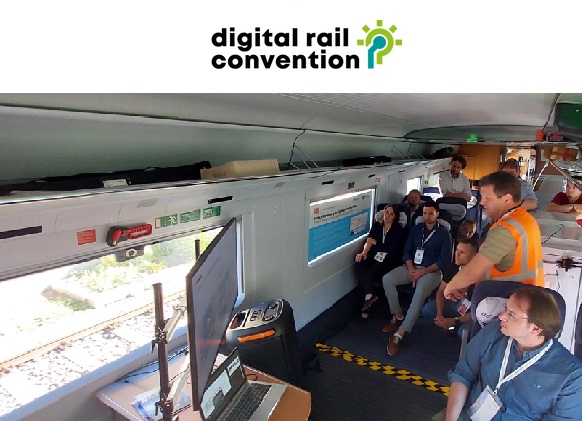
5G-RACOM @ Digital Rail Convention ’23
21 Sept. 2023 – Project partners of the 5G-RACOM consortium have presented their work at the Digital Rail Convention 2023 in Annaberg, Germany, on board of DB’s test train “advanced TrainLab”.
First Field Measurements in Work Package 3
26 Nov 2024 – 5G-RACOM partners have met in Erzgebirge to conduct measurement trials with DB’s experimental ICE train “Advanced TrianLab”. First multipath solutions for hybrid FRMCS networks have been tested.
5G-RACOM Presentation @ World Congress on Railway Research in Colorado Springs, USA
19 Nov. 2025 – Our project partner Funkwerk Systems GmbH has presented collaborative work on “Multipath Protocol Studies for Hybrid FRMCS Networks in the 5G-RACOM Project” at the world’s biggest railway research conference WCRR in Colorado Springs, USA. The talk was very well received by the international audience. It shows: 5G-RACOM concepts make an impact not only within but also beyond Europe.
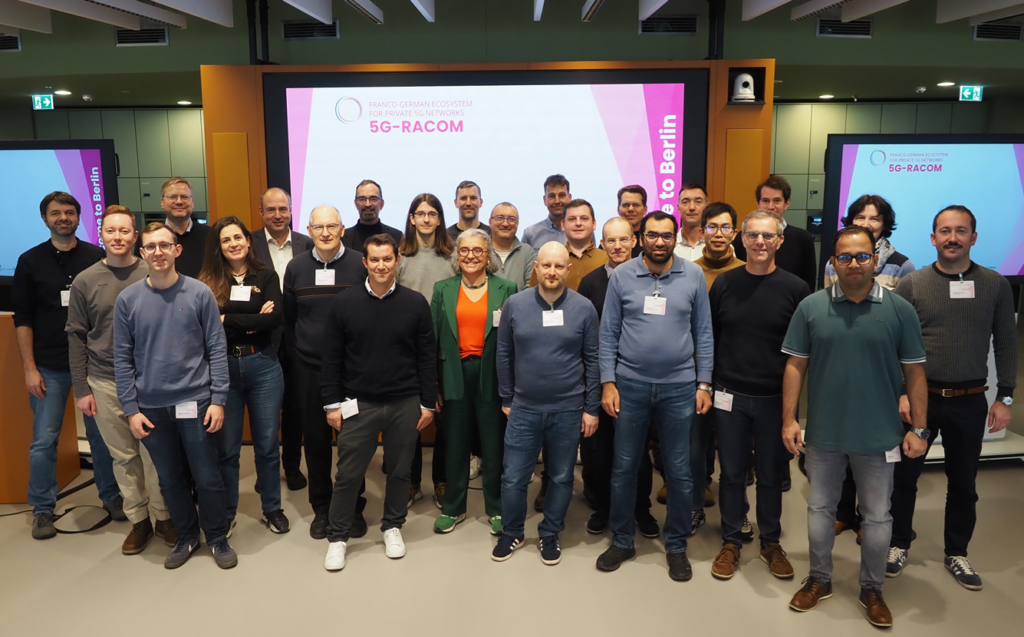
5G-RACOM Final Conference in Berlin
26 Nov. 2025 – The project held its final event at Deutsche Bahn’s EUREF Campus in Berlin, Germany. The whole project team met to close the work packages and present the results on FRMCS radio channel characterization, on solutions for GSM-R/FRMCS co-existence and on FRMCS multipath protocol implementations to the public. The event was attended by over 80 people, including railway infrastructure managers, railway authorities, academia and telco equipment suppliers.
Project Partners
The 5G-RACOM project runs over 3 years until November 2025. It is jointly coordinated by DB Netz AG and SNCF Réseau and brings together leading companies and academia of the railway communication sector, being Kontron Transportation, Funkwerk, IMT Alantique, Siradel, Railenium, Université Gustave Eiffel, TU Chemnitz and TU Ilmenau.



